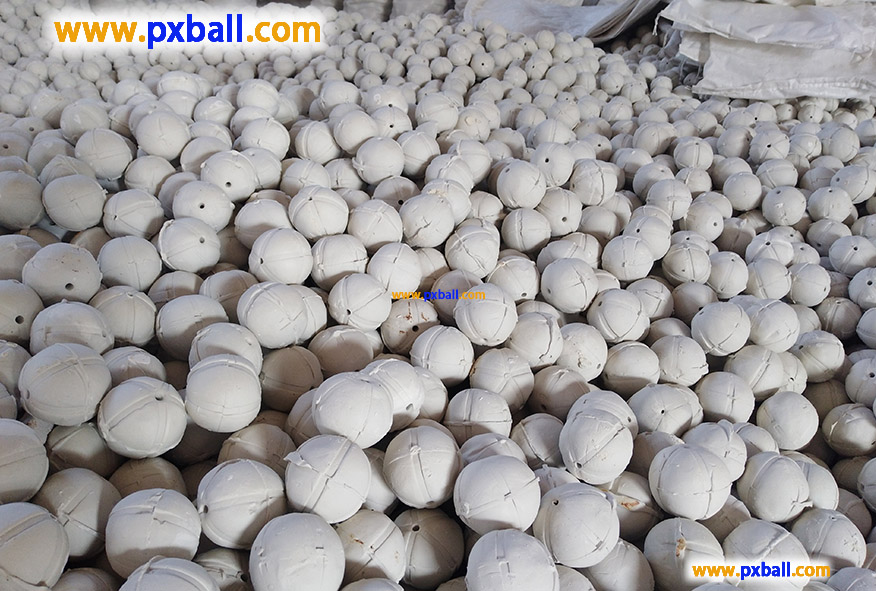
China porous inert ceramic ball advantages:
1. High specific surface area and good mass transfer performance: the pore structure of the porous ceramic ball makes it have a large specific surface area, which can provide more contact sites for the adsorption and reaction of substances.
2. Excellent filtration and separation performance: the holes can play a screening role, according to the size and distribution of the holes, can effectively filter out impurities, particles and other substances in the liquid or gas, to achieve the purpose of purification.
3. Good thermal stability and high temperature resistance: ceramic material itself has high thermal stability, and can maintain the stability of structure and performance in high temperature environment. Porous ceramic balls are fired at high temperature and can maintain their physical and chemical properties under high temperature conditions, and can be used in high temperature environments such as high temperature furnaces and thermal equipment.
4. Chemical stability and corrosion resistance: Ceramic materials have good chemical stability and can resist the erosion of acids, alkali, salt and other chemical substances.
5. Low fluid resistance: The hole structure of the porous ceramic ball can reduce the resistance of the fluid through, so that the fluid can flow more smoothly. In some systems with high fluid flow requirements, such as pipeline transportation, reactors, etc., energy consumption can be reduced and the operation efficiency of the system can be improved.
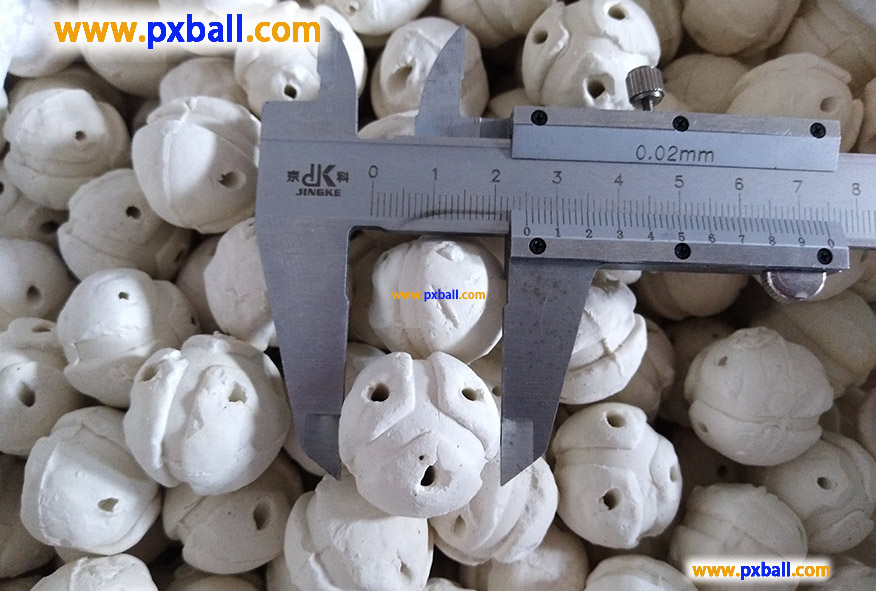
Chinese porous inert ceramic ball forming method
Extrusion molding: The ceramic raw materials are mixed with appropriate additives (such as binders, lubricants, etc.) to make a plastic blank, and then extrusion into a ball through the mold, in the extrusion process can be formed through a special mold structure holes.
Isostatic pressing: the ceramic raw material is made into a powder state, and then the powder is injected into the mold with a multi-core, the shape and position of the core determines the shape and distribution of the holes, and the porous ceramic ball body is obtained after stripping.
Foaming method: The foaming agent is added to the ceramic raw material, and the foaming agent decomposes to produce gas during the sintering process, thus forming holes inside the ceramic ball. This method can easily control the size and porosity of the hole, but it has high requirements for the selection of blowing agent and process control.

China porous inert ceramic ball chemical industry application:
Catalyst support: If applied to catalyst support, it is necessary to select a porous ceramic ball with large specific surface area, high porosity and appropriate pore size distribution, so that the catalyst can be fully attached and dispersed, and improve catalytic efficiency. For example, in some catalytic reactions of fine chemicals, it may be necessary to select ceramic balls with nanoscale pores to increase the contact area with the catalyst. At the same time, the chemical stability of the ceramic ball should be considered to ensure that there will be no adverse reaction with the reactants or catalysts during the chemical reaction.
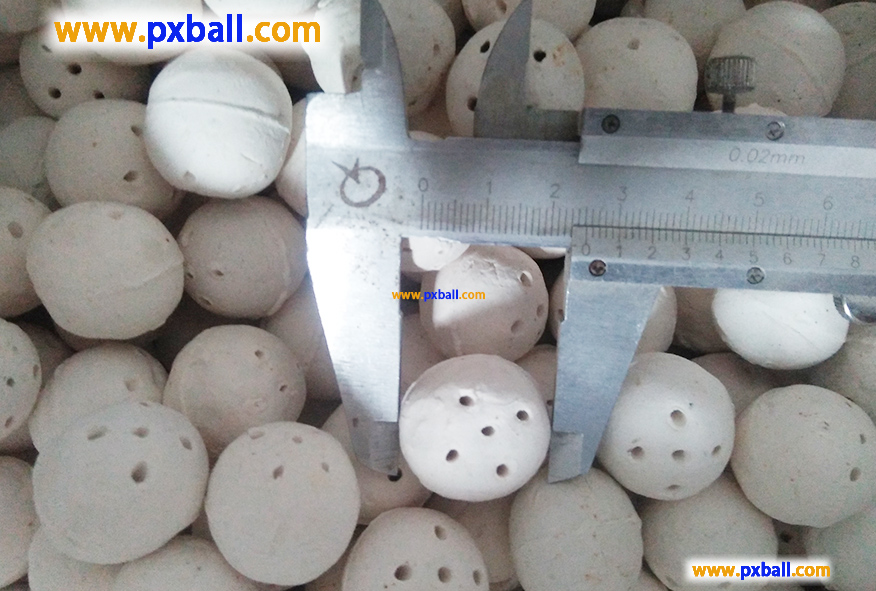
Fillers: When used as chemical fillers, the fluid resistance characteristics of ceramic balls should be considered. Products with a pore structure that reduces fluid resistance, increases material dispersion and flux, and is mechanically strong enough to withstand pressure and fluid erosion in the tower should be selected. For example, in large chemical towers, porous ceramic balls with high compressive strength and uniform pores need to be selected to ensure the stability and mass transfer effect of the packing layer.
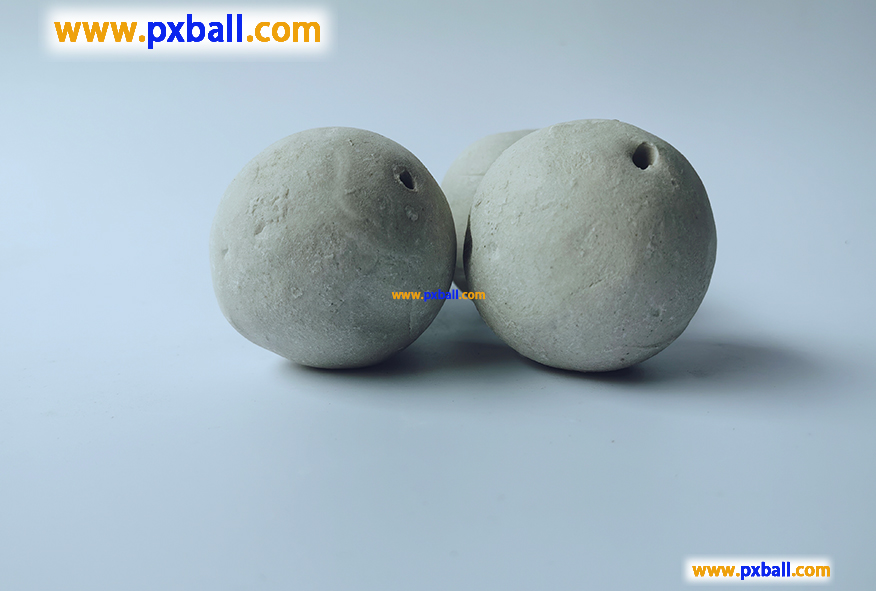
Medium Alumina Ceramic Ball

China Porous Inert Ceramic Balls
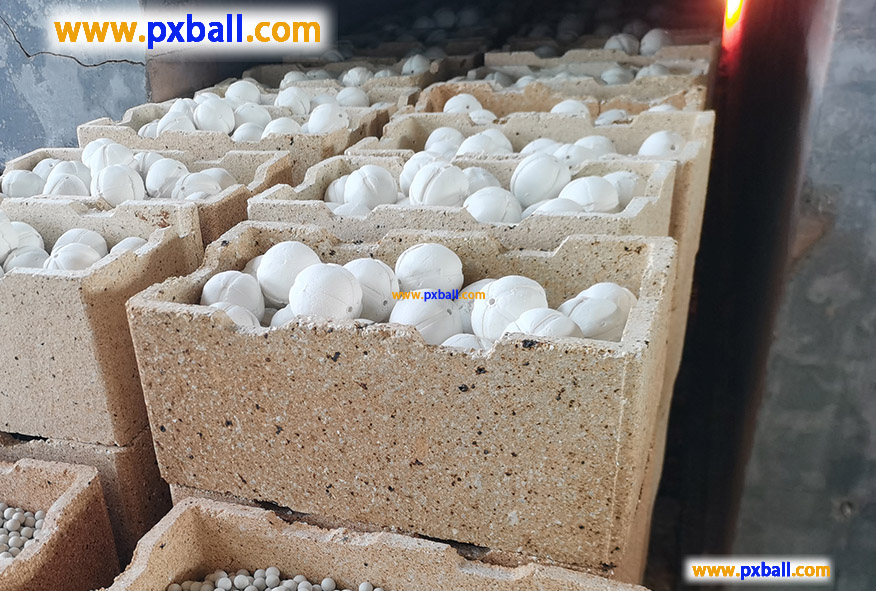
Inert Ceramic Ball Support Media
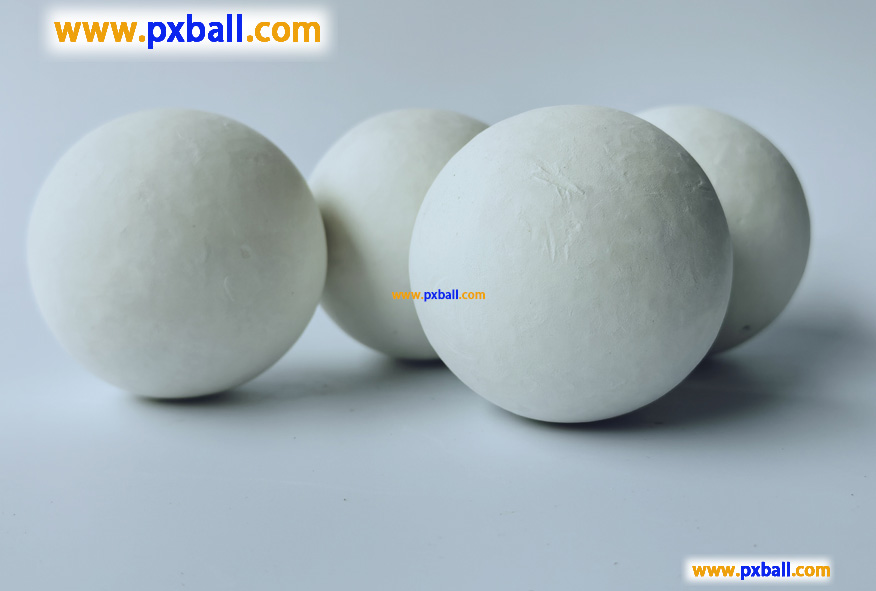
inert alumina ball
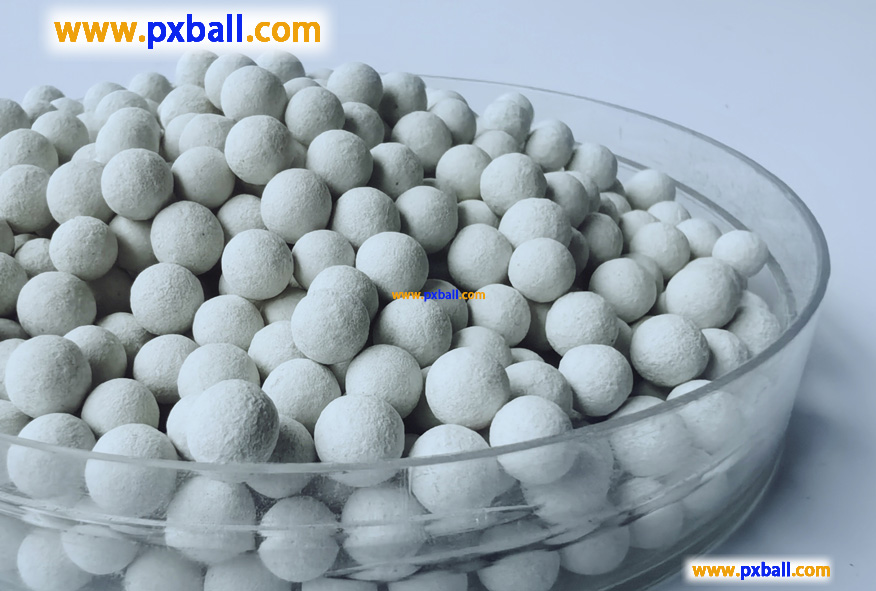
6mm ceramic ball
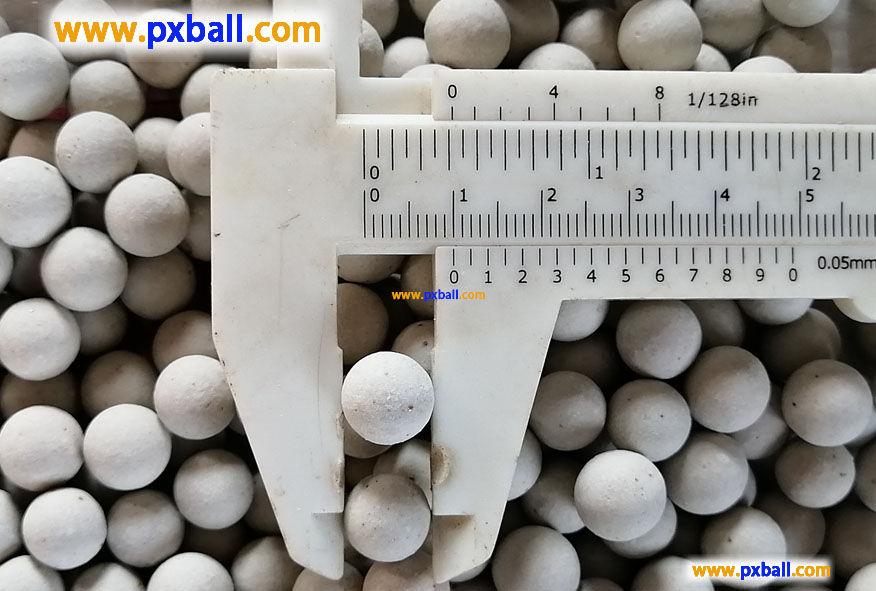
Best low alumina ball
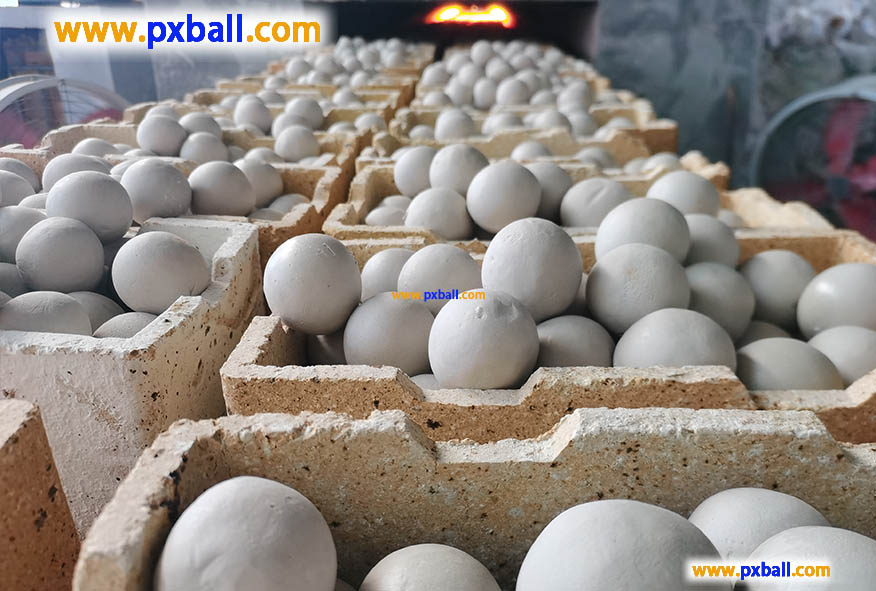
Inert porcelain ball
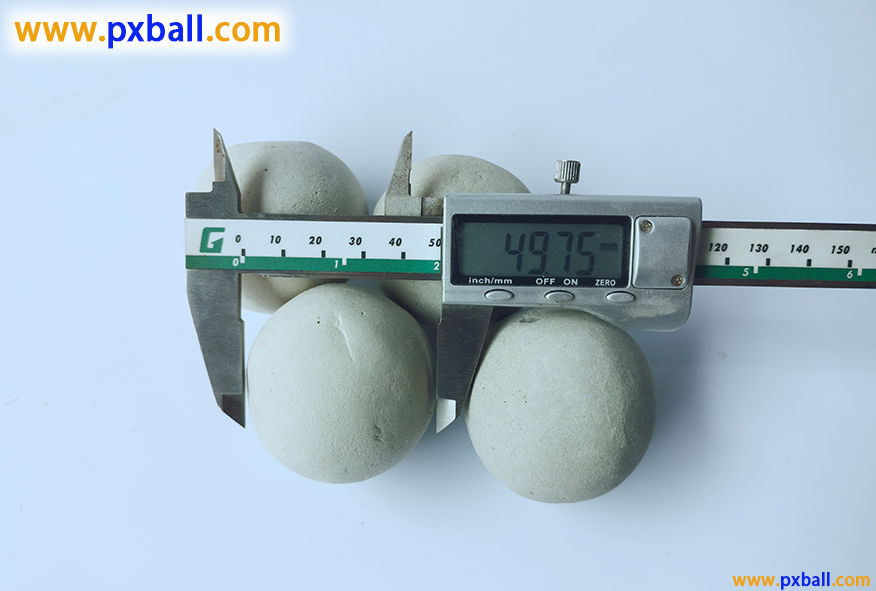
Handmade ceramic balls